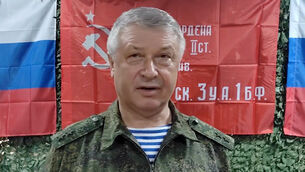Blair win sets debate on EU fundamentals
For now Britain will continue to get back a third of the money it pays to the EU budget, of which 30% comes from France, 2.1% from Ireland and 10% from the poorest new member states.
Almost half the budget will continue going to agriculture and the French, with a quarter of their land producing food, will get over 10% of it. The vast majority of the funds - 80% - goes to big landowners like the British royal family and to multi-national food processors like Nestlé and Tate and Lyle.














